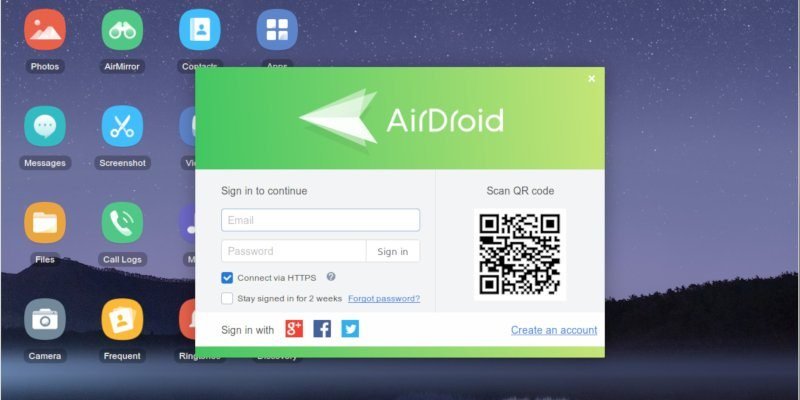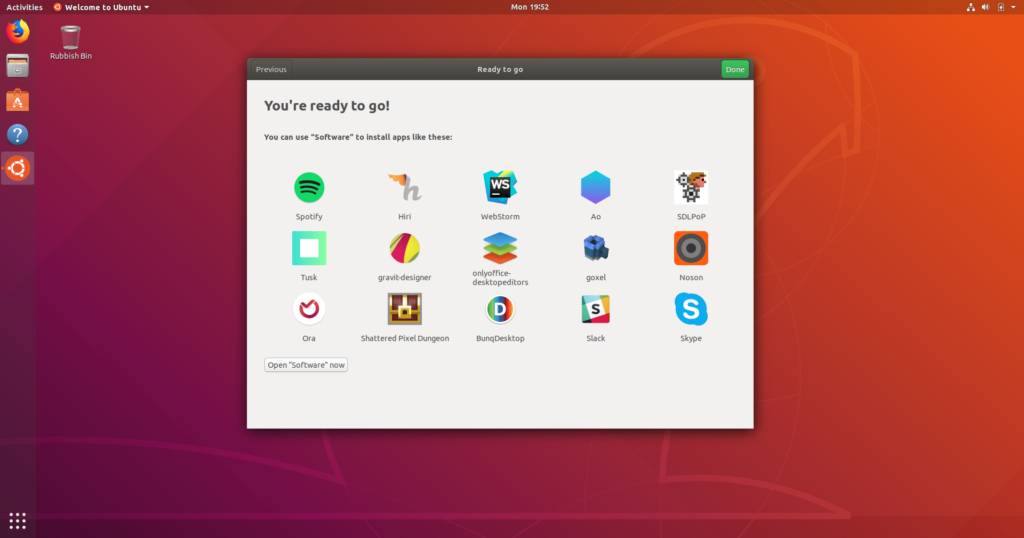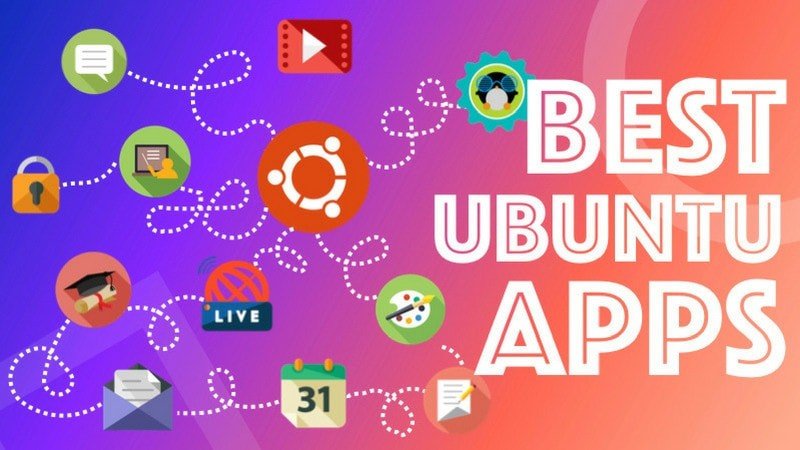Everything Linux 101 Blog
Great articles on Linux and how to get the most out of Linux.
January 11, 2019 • Read in 3 minutes last updated January 11, 2019 by Linuxize Apt is a command-line interface for the package management system and combines the most commonly used functionalities from apt-get and apt-cache including option to list installed packages. To lists all packages installed on your system run the following command:…
Read MoreHow to Fix Broken Packages in Ubuntu – Posted on Jan 11, 2019Jan 11, 2019 in Linux Apt, Ubuntu’s package manager, is among the most powerful and intuitive, but that doesn’t mean that things can’t go wrong. Occasionally, a package install goes wrong on Ubuntu, and you’re left to pick up the pieces. It’s a…
Read MoreBy: M.HANNY SABBAGH You main way to install GNOME extensions will be via the extensions.gnome.org website. It’s an official platform belonging to GNOME where developers publish their extensions easily so that users can install them in a single click. In order to for this to work, you’ll need two things: Browser Add-on: You’ll need to…
Read MoreBy Abhishek Prakash Brief: A beginner’s guide to using Snap packages in Ubuntu or any other Linux distribution. You can also download a free cheat sheet for quick reference. Canonical introduced a new packaging system called Snap packaging in Ubuntu 16.04 LTS. It claims to be more stable and secure. However, that secure part of…
Read MoreDebian is an excellent Linux distribution, especially for servers. It is also a great distribution to run on a regular desktop computer or laptop. You very rarely encounter a bug on this operating system, and packages integrate exceptionally well with one another. For example, you can easily switch to a different display/login manager, add another…
Read More5 Simple Ways To Free Up Space on Ubuntu A bit of maintenance can make heaps more room Scott BouvierUpdated 9 August 2016 How To / List Let’s go beyond the obvious Let’s say you need to free up some space on Ubuntu — how do you go about it? Unlike Windows, with its built-in defrag and disk…
Read MoreFlatpak is the new way to install and run applications on Linux. Unlike distribution maintained applications, flatpak is a great way to deploy Linux applications without worrying about “which” Linux distro specifically. You might have realized almost all Linux distros provide the same software but differing versions. One such example is, a distro comes bundled with the…
Read MoreOct 1, 2018 23:04 GMT · By Marius Nestor GNOME Project’s Abderrahim Kitouni announced today that the latest GNOME 3.30 desktop environment is now available as Flatpak runtimes for installation on GNU/Linux distributions from the Flathub portal. Dubbed “Almeria” after the host city of the GUADEC 2018 conference, the GNOME 3.30 desktop environment was released on September…
Read MoreEncryption is the best way to protect your important documents personal info and other credentials. Suppose, you have a USB pen drive and your all important data stored on it. In case you will lose your USB pen drive, all data stored on it will be lost. It will be in hands of some other…
Read MoreAirdroid is a unique and useful application that lets you transfer files, send SMS messages and control your phone through your PC. It is available within the Google Play store and the iOS App Store and provides a useful alternative if you need to grab a file but don’t have a USB cable at hand.…
Read Moref you have recently switched from Windows to Linux, you might be missing the catchy themes and the customizable taskbars of your desktop. The orange Ubuntu theme might be too plain for you and you may wish to work on a more user-friendly and colorful environment. In this article, we will tell you how to…
Read MoreThis article explains how to transition from having a swap partition to a swap file. If you don’t need to disable any existing swap partition and all you need is to create a swap file and activate it, simply skip steps 1 and 2. On my Ubuntu 18.04 desktop I had a fairly large swap…
Read MoreFrom time to time, we need to clear up our system storage to make space for installing new programs and dealing with additional files. This is especially important when you have a low storage device or a limited storage capacity. Even if you have a large storage available but you are a person like me…
Read MoreIntroduction Updated For Ubuntu 16.04 Windows 10 has been out for a while now and as I have a track record for writing dual boot guides I thought it was about time I created a Windows 10 and Ubuntu dual boot guide. This guide focuses on computers with a Unified Extensible Firmware Interface (UEFI) over…
Read MoreCreate Bootable USB Media From ISO In Ubuntu We have already given the complete guide for using Rufus to create bootable USB media. Interestingly, RUFUS application only supports Windows and Mac. So if you are using Linux distributions, RUFUS is not the way to go. But fear not. Just as the case with almost every other…
Read MoreBeginner’s Guide to the dpkg Command in Debian Michael Aboagye 10th Aug 2018 Linux No Comments Every Linux distribution comes with a specific package manager. For Debian or Debian-based distro, the default package manager is “apt” or “apt-get” or the graphical Software Center/Synaptic. These package managers, in turn, rely on the low-level tool dpkg to manage software packages. In…
Read MoreBest Ubuntu apps for a better Ubuntu experience Of course, you don’t have to use all of these applications. Just go through this list of essential Ubuntu software, read the description and then install the ones you need or are inclined to use. Just keep this page bookmarked for future reference or simply search on…
Read MoreHow To Mount OneDrive In Linux Using Rclone (Supports Personal And Business Accounts) Microsoft OneDrive doesn’t have an official client application for Linux, but you can access your OneDrive files from a file manager on Linux thanks to a third-party tool called Rclone. This article explains how to mount OneDrive in Linux using Rclone. Microsoft OneDrive (previously…
Read MoreA cron job is a Linux command that’s executed at regular intervals. These “jobs” can be scheduled via the command line, but it’s much easier to do it via the cPanel GUI interface. cPanel also conveniently shows the number of existing cron jobs, and it can also send the output of the command via e-mail.…
Read MoreLibreOffice office suite reached the 6.0 release more than a week ago. Now it’s finally made into LibreOffice Fresh PPA for Ubuntu 16.04, Ubuntu 17.10, Ubuntu 18.04. Though LibreOffice offers .deb binaries for downloading in its website, it’s recommended to install the PPA packages which are well integrated with Ubuntu desktop. LibreOffice 6.0 release highlights: Better compatibility…
Read MoreFlatpak, the open-source Linux application sandboxing and distribution framework formerly XDG-App, received a new major update that brings lots of new options and commands, as well as various other improvements. Flatpak 0.11.8 is now the most advanced version of the universal binary format used to make the distribution of Linux apps a breeze across multiple…
Read MoreModern Linux distros are designed to appeal to a large number of users who run modern hardware. As a result, they have become too bloated for older machines, even if you manually delete files. Without a healthy dollop of system memory and an extra core or two, these distros may not deliver the best performance.…
Read More



















